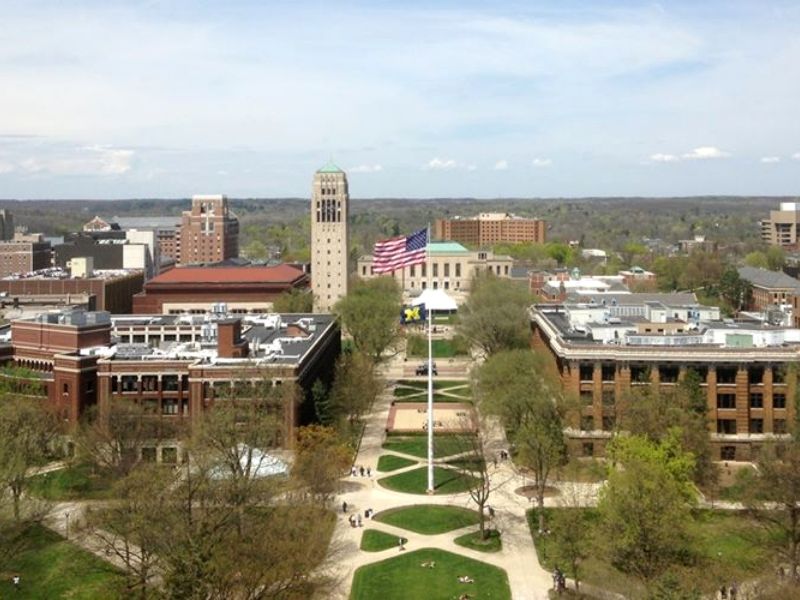India can make the most of its Tier II and III city-based universities that aren’t very well renowned but have significant expertise in narrow disciplines important in different regions of the country, believes Mark S Schlissel, president, University of Michigan (U-M). Leading a delegation to India earlier this month, Schlissel and his team met up with government officials, education institution partners, alumni and business leaders to discuss current and future collaborations.
Emphasising the need for Indian universities to better themselves while providing for varied aspirations rather than mimicking top global universities, Schlissel said, “I think while rankings are a good way to publicise the strength of a university, their validity is not always clear. They are so designed that reputed universities end up with very high rankings (and there is great consistency about it). However, the parameters on which the rankings are based might not be equally important for every country and every population within a country. So while it is reasonable for India to aspire to have a few top universities, let’s not forget it needs a 1000 universities that are reasonably well equipped to deliver education to a very large youth population. I wouldn’t get too hung up on investing in excellence if it meant sacrificing higher education to a billion people.”
One of United States’ largest public research universities, University of Michigan (estb.1817) offers 260 different degree programmes in its 19 schools and colleges. With 100 Indian faculty members and researchers and 800 students, India is the university’s second largest source of foreign students after China. However with President Donald Trump administration steadily tightening visa policies, there has been a growing concern amongst Indian applicants to American universities. Speaking about the restrictions, Schlissel said the current stance of the US government is hurting the country’s potential of becoming a destination for talented people from all around the world.
“I am very concerned about the policy. I hope the situation is a temporary one and that through our elections, we will elect leaders having greater appreciation for the value added by the people who want to come and study in our universities or teach or start businesses in our country,” he said.
U-M also has a number of ongoing partnerships with several Indian institutes. U-M’s Ross School of Business has been running executive education programmes that have witnessed participation from 550 industry leaders representing 70 Indian companies. Its collaboration with the All India Institutes of Medical Sciences (AIIMS), Delhi since 2012 includes research on cancer, immunology, disaster management, genetics, and trauma. Deepening its partnership, U-M announced a collaboration to help train genetic counselors in India to use the patient’s genetic information to make decisions based on them.
U-Michigan is already the largest producer of open online content and has over six million Indians enrolled in its free courses. U-M’s programming and tech-savvy courses are also amongst the most popular on Coursera – an online learning platform offering specialisations and degrees from universities worldwide. The university has announced a $50 million dollar commitment to build a centre for academic innovation focused on developing human-to-human interactions in online education through the use of augmented and virtual reality technologies.
Dipta Joshi
